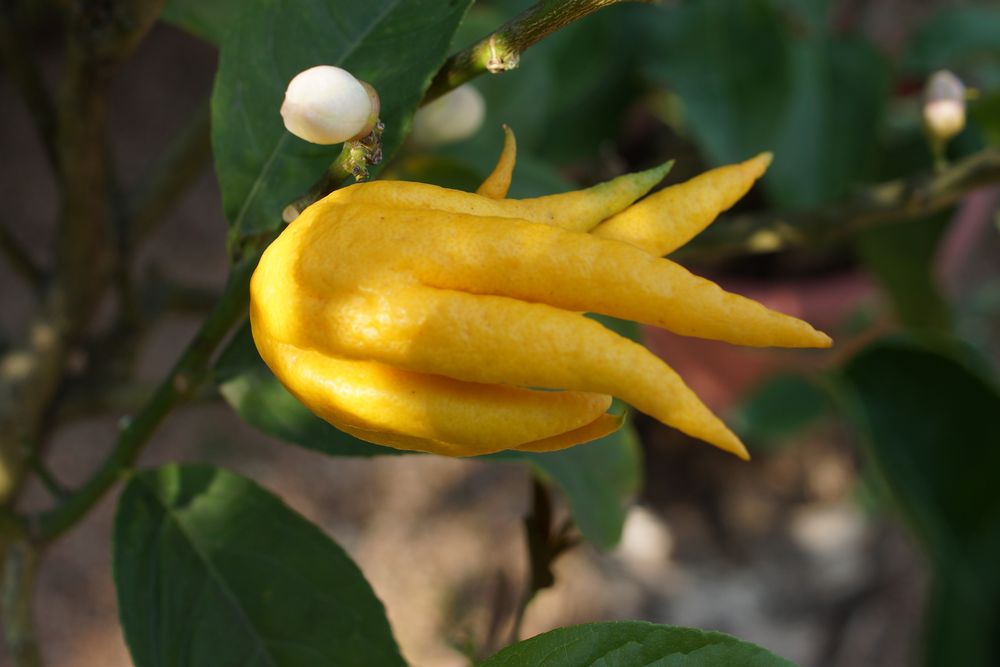
Buddhas Finger Zitrone Foto & Bild pflanzen, pilze & flechten, blüten & kleinpflanzen
Die Buddhas Hand, die Reitbauer seither exklusiv von den Bundesgärten bezieht, hält er für die Diva unter den Zitrusfrüchten, die sich sehr gut zum Kandieren eignet, weil sie eben kein Fruchtfleisch enthält. Ausgereifte, intensiv gelbe Buddhas-Hand- Zitronen schmecken frisch und süß, außer der Schale kann man auch das Albedo, den.
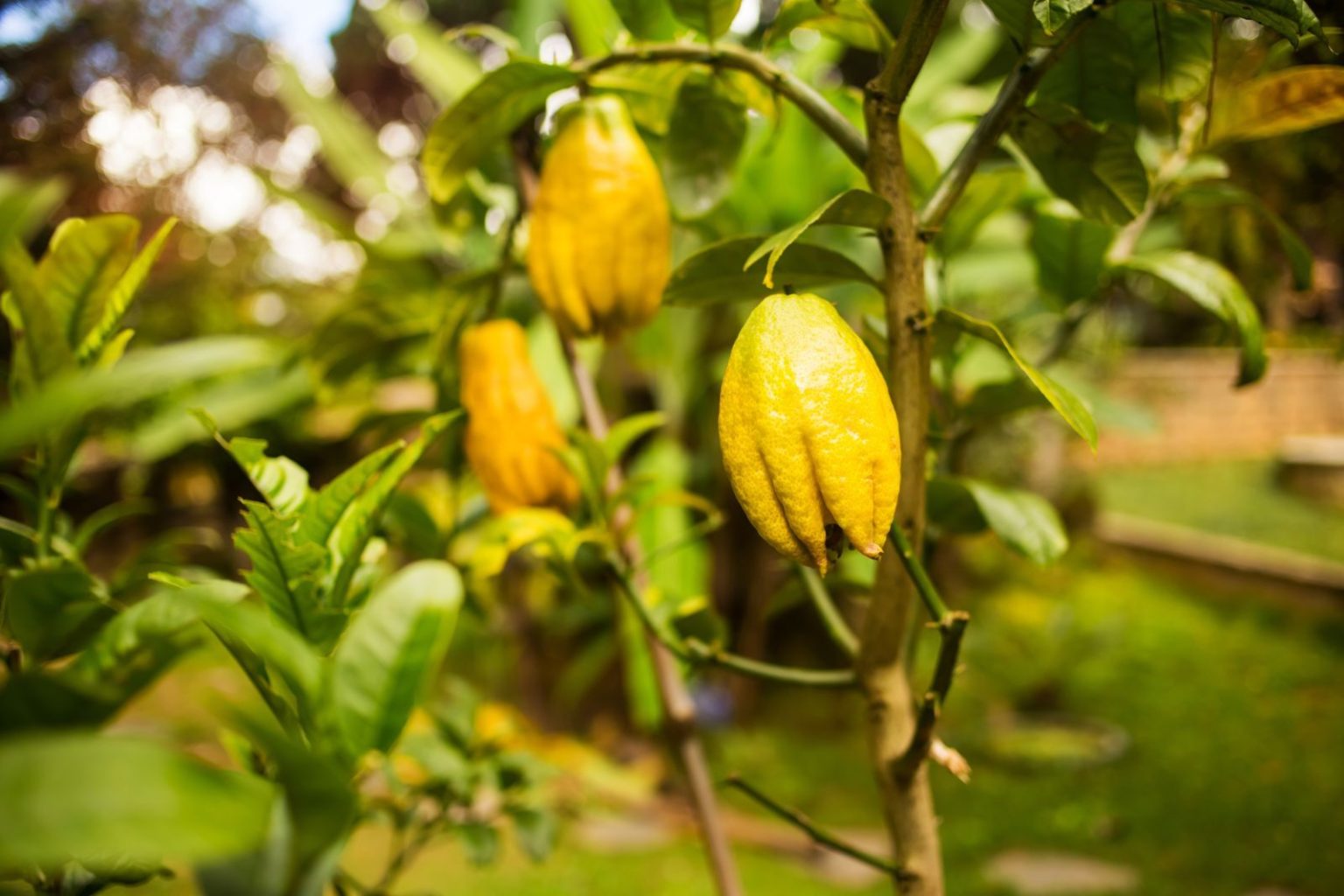
Buddhas Hand Pflanzen & Pflegen der Zitrone Plantura
Während der Überwinterung wird Buddhas Hand nicht gedüngt. Bio-Zitrus- & Mediterrandünger 800 ml. (4.8/5) Ideal für alle Zitrus- & Mediterranpflanzen geeignet. Bio-Flüssigdünger für kraftvolle Pflanzen & aromatische Früchte. Schnelle & einfache Gießanwendung - unbedenklich für Haus- & Gartentiere. 12,99 €.
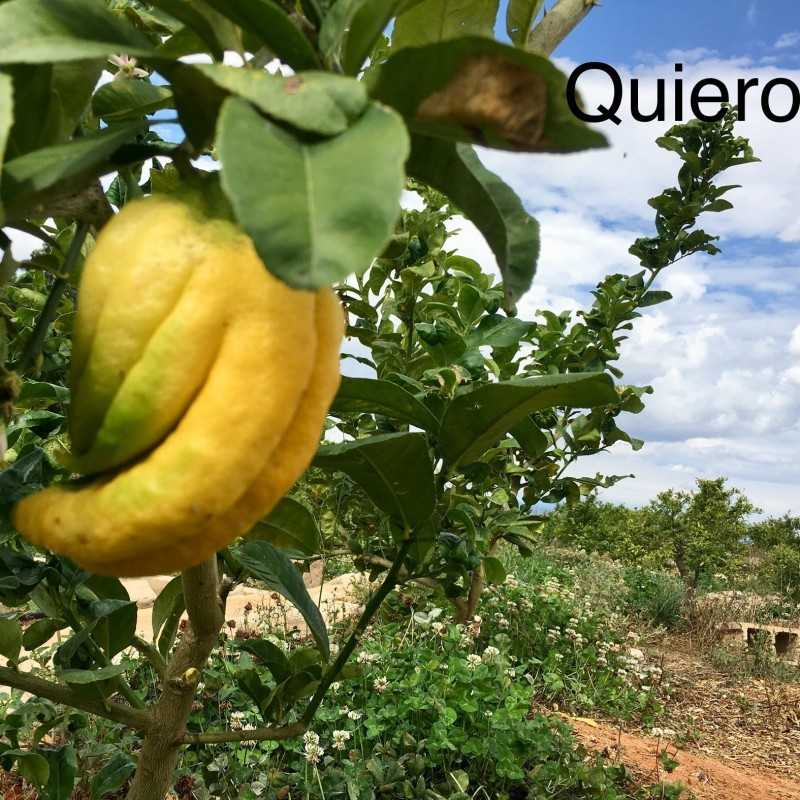
Kaufen Buddhas Hand (1 Frucht) Quieronaranjas, Familia Casesnoves, S.L.
Pflege. Sind der Standort und das Substrat der Zitronatzitrone ‚Buddhas Hand' optimal, erweist sich die Citrus medica als äußerst pflegeleicht. Sie kann über 40 Jahre alt werden und benötigt im Bereich der Pflege nur ausreichend Wasser und die passenden Nährstoffzugaben. Zitronatzitrone mit süßlichem Duft.

Zitronatzitrone Zitruspflanze mit Geschichte Zitruspflanzen, Buddhas hand, Pflanzen
Dry thoroughly and place in a wide-mouth jar. Cover with vodka until totally submerged. To hold down fruit, it may be necessary to weight it down with a plate or mug. Seal and place in a cool dark location for 4 to 5 days. Strain into a bottle. If giving as a gift, tie a fresh small Buddha's hand to the neck of the bottle.

Zitronatzitrone Die Königin der Zitronen Plantura
Add the sliced Buddha's Hand & Meyer lemon peel, pulp & juice, sugar and water to a large heavy-bottomed stainless steel or other non-reactive pot. Stir to mix well. Bring to a boil over medium high heat. Reduce heat to a low, but steady boil & simmer mixture for about 45 - 60 minutes, or until the liquid is reduced by half.

Buddhas Hand Zitrone Lemon "Hand of Buddha"
Buddha's hand fruit is edible. The best way to describe its flavor is that of a lemon peel, but without any sourness or bitterness. There is a hint of sweetness, though it's subtle. With no flesh, pulp, or seeds inside, the fingered citron is practically all rind. There's no juice or moisture as you experience with most fruits.
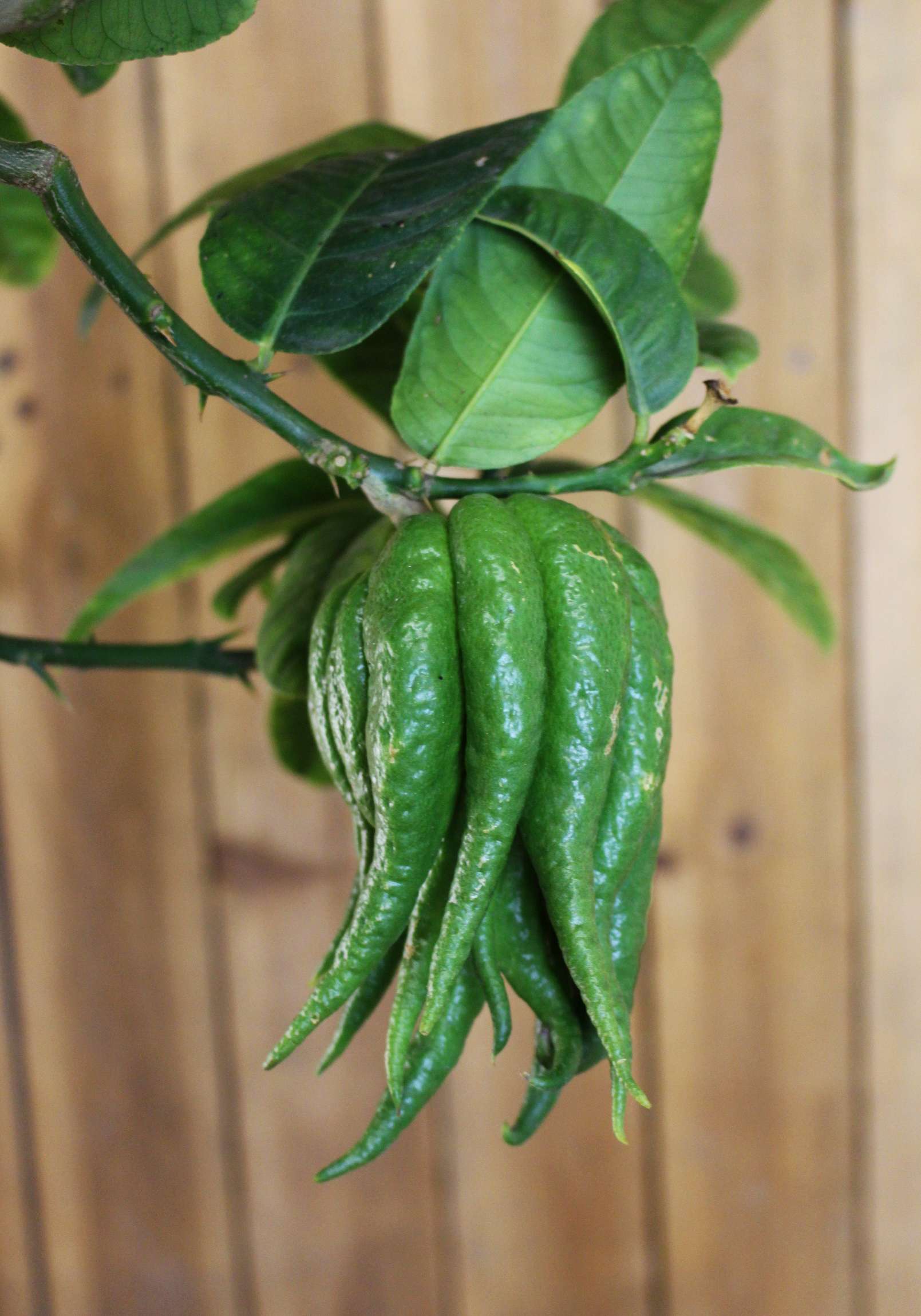
Buddhas Hand Zitrone "Mezzo"
Cut off the stem end from the base of the citron. Hold the fruit firmly against your cutting board and slice it in half lengthwise. Lay one half of the Buddha's hand flat-side down on the cutting board. Slice it widthwise from the base toward the fingers. Make the slices as thick or thin as needed for the recipe.
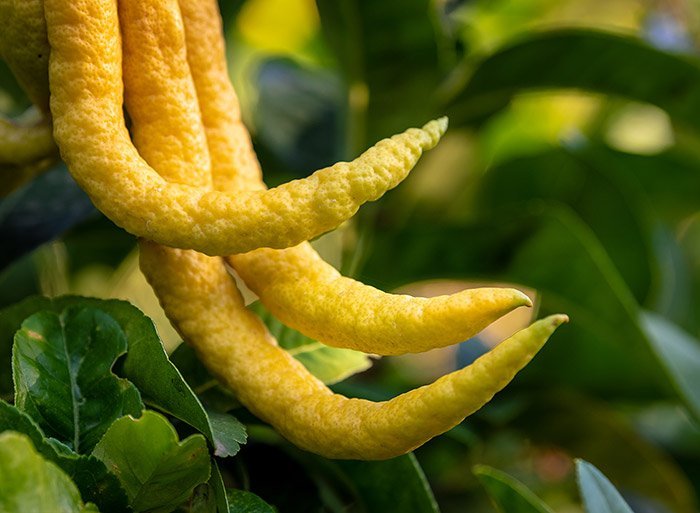
Wie kam die Zitrone ans Mittelmeer? Jüdische Traditionen könnten die ersten Zitrusfrüchte in
Buddhas Hand ist eine sogenannte Zitronatzitrone: Sie enthält kein Fruchtfleisch und auch keinen Saft. Dafür kann man neben der gelben Schale auch den weißen Anteil (das Albedo) komplett verwenden, er ist nicht bitter wie bei anderen Zitronen. Eine ausgereifte Fingerzitrone schmeckt süß und hat ein ganz eigenes, frisches Aroma.
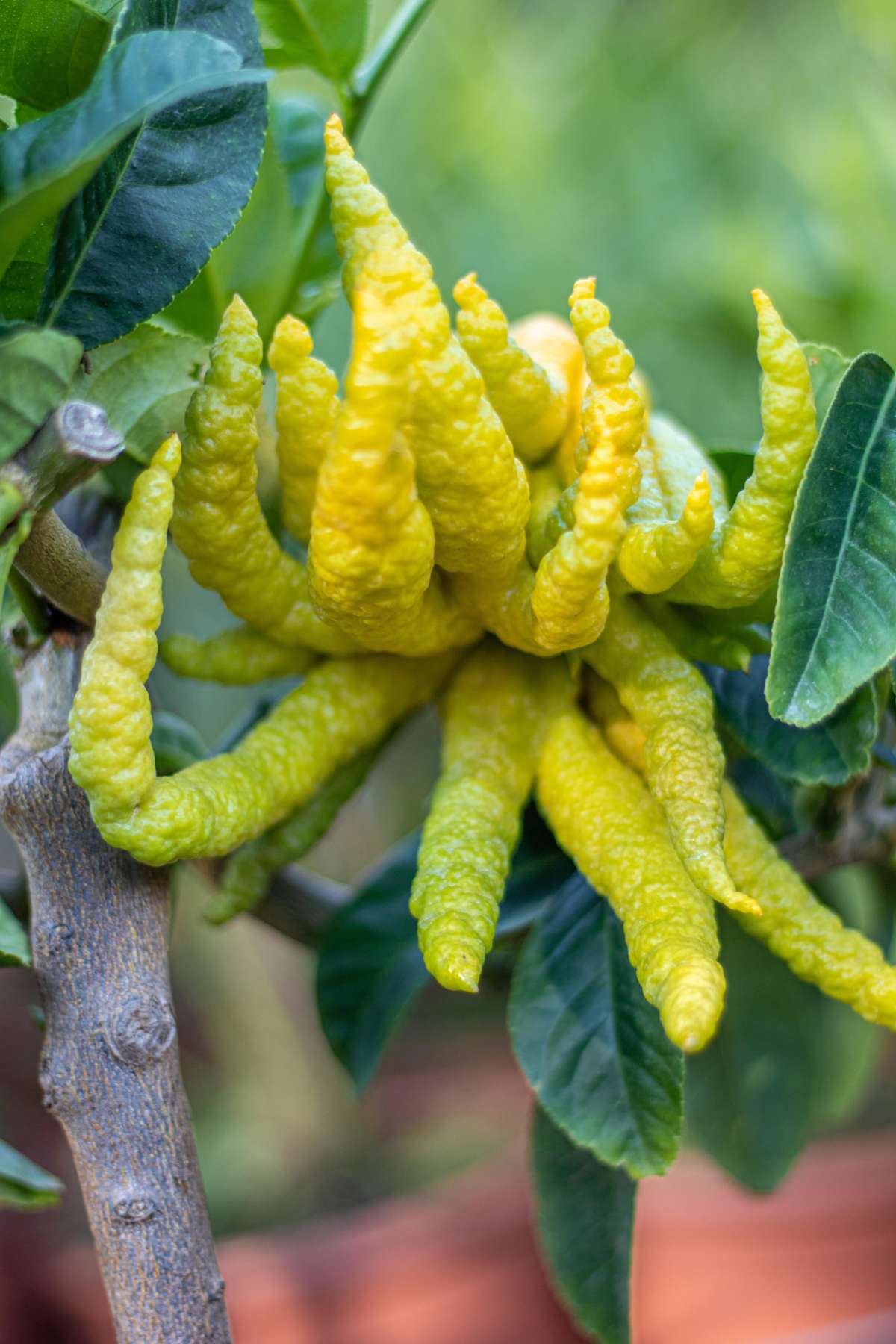
Buddhas Hand Zitrone Citrus medica ‘Digitata’
Buddhas Hand ist die wohl die ungewöhnlichste Zitrone, die es gibt. Die langen "Finger" des Gewächses werden in der Küche auf eine besondere Art verwendet. Sie ist gelb bis orange und hat lange.

Zitronenbaum (Buddhas Hand) aus Italien Zitronen baum, Zitronenbaum, Buddhas hand
3. Raw: Shave thin slices of Buddha's hand and add it to a salad or use it to top steamed tofu or fish. For salad dressing, check out White On Rice Couple's recipe for Buddhas Hand Vinaigrette. 4. Sugar and Salt: Use Buddha's hand zest or even a whole finger to make scented sugar and flavored salt. With the holidays just around the corner.
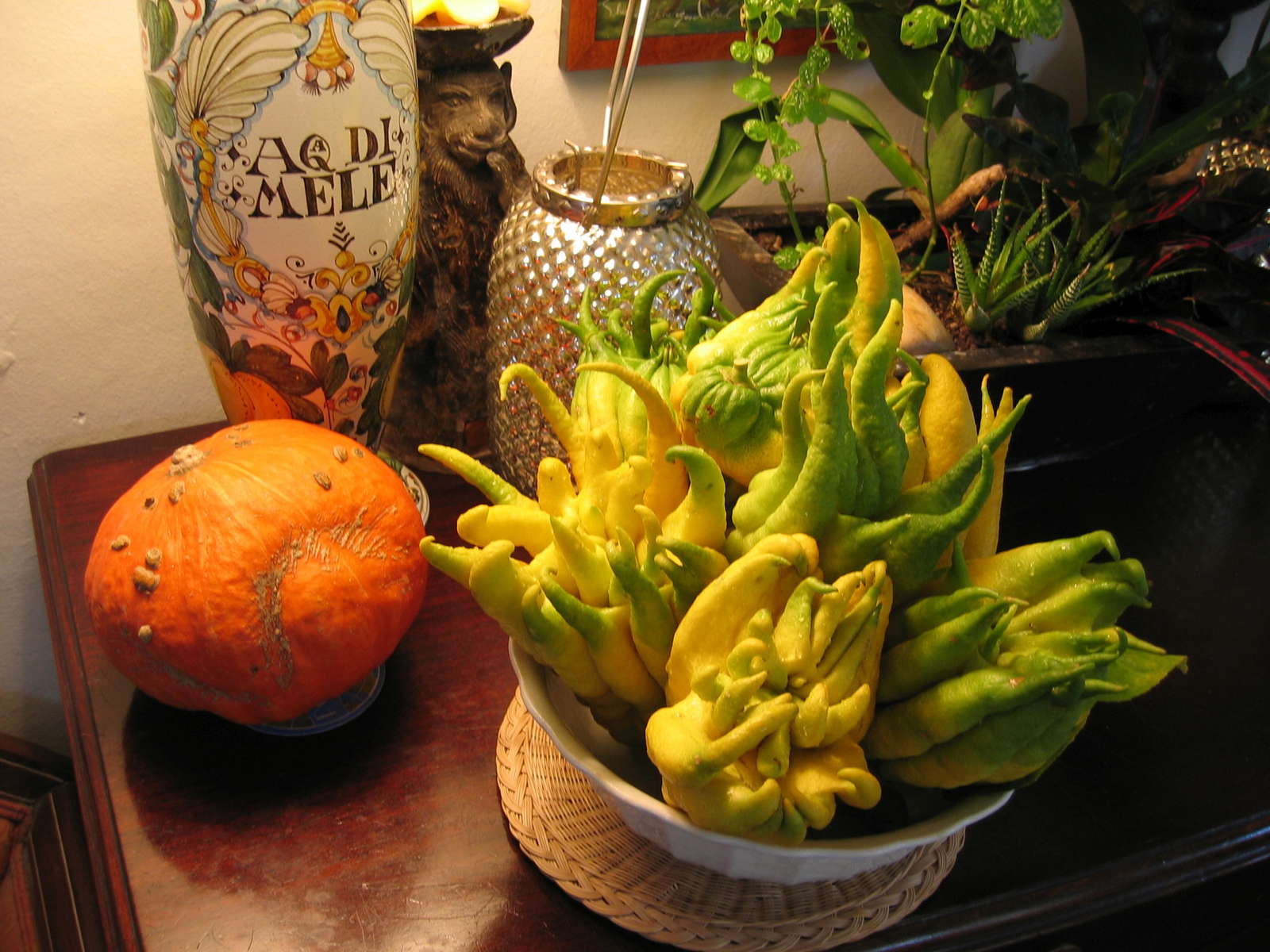
Buddhas Hand eine goldene Besonderheit aus Fernost Plantura
3) Make life zesty. Buddha's Hand citron can really be used as substitute for most other recipes involving citrus zest. A great way to dress a winter salad is with a citron vinaigrette —food.
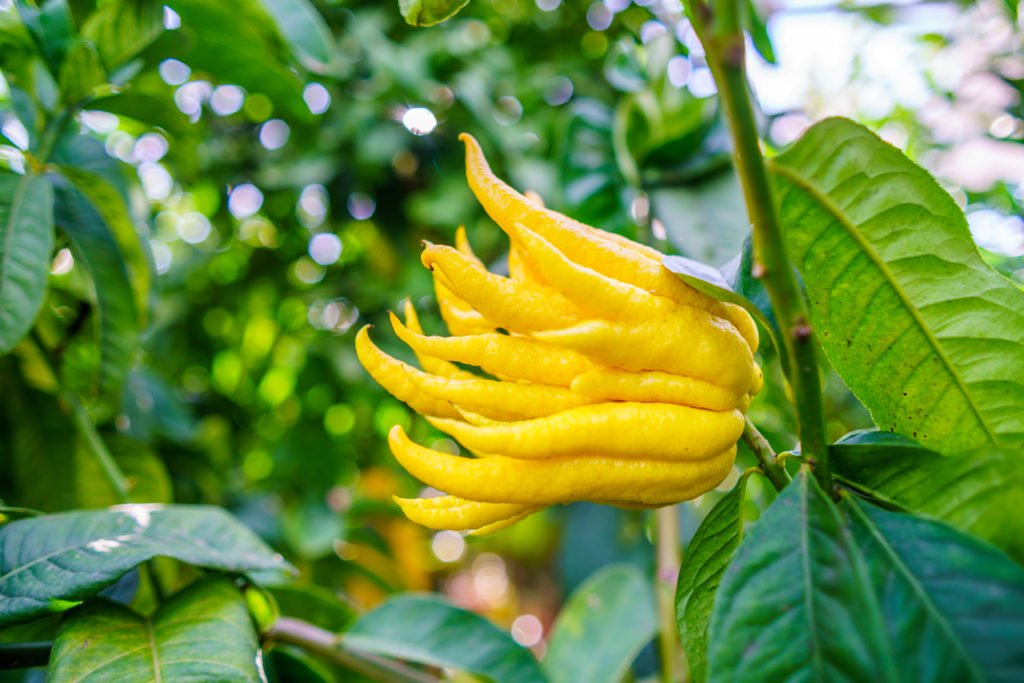
Buddhas Hand Pflanzen & Pflegen der Zitrone Plantura
The fruit is commonly depicted on ancient Chinese jade and ivory carvings, lacquered wood panels and prints. The Japanese also revere the Buddha's hand and is a symbol of good fortune. The fruit is a popular gift at New Year's and is called "bushkan.". The fruit is placed on top of special rice cakes or used in the home's tokonoma, a.

Buddhas Hand Pflanzen & Pflegen der Zitrone Plantura
Smithsonian Magazine says it will run you about $24 per pound, so get every last bit of that zest. But don't worry about using it up quickly; a Buddha's hand can keep in the fridge for up to a.

Pin auf pflanzen
You would do this by chopping up the hand and then boiling it in water, discarding the water, taste, add new water, boil again, and repeat until it tastes right to you." Pegeen got tips from the Hotline before preserving a Buddha's Hand as you would preserve lemons. Greenstuff likes to use their zest (4, above) -- you can use it anywhere lemon.

Zitronengelbe BuddhasHand stockfoto. Bild von hand, zitronen 93264942
Buddha's hand. Citrus medica var. sarcodactylis, or the fingered citron, is an unusually-shaped citron variety whose fruit is segmented into finger-like sections, resembling those seen on representations of the Buddha. It is called Buddha's hand in many languages including English, Chinese, Japanese, Korean, Vietnamese, and French .

Zitruspflanzen Galerie herrliche Bilder von Zitronen und Orangen
The skin is the edible part of the fruit. The zest from Buddha's hand ( Citrus medica var. sarcodactylis) has an intense aroma, which is both citrusy and floral at the same time. The pith is not bitter, like in lemon, so you can also eat it. The actual taste of the zest or oil is lemony, but with a unique combination of bitter and sweet hints.